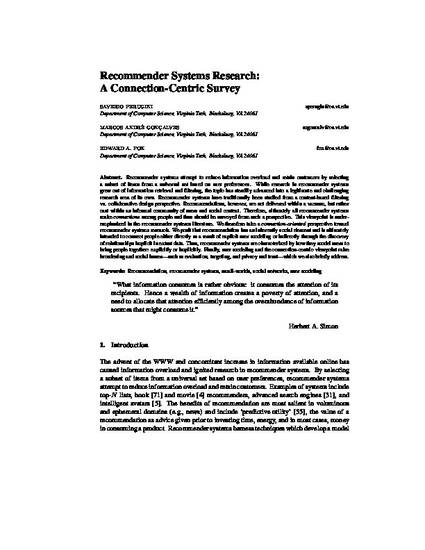
Recommender systems attempt to reduce information overload and retain customers by selecting a subset of items from a universal set based on user preferences. While research in recommender systems grew out of information retrieval and filtering, the topic has steadily advanced into a legitimate and challenging research area of its own. Recommender systems have traditionally been studied from a content-based filtering vs. collaborative design perspective. Recommendations, however, are not delivered within a vacuum, but rather cast within an informal community of users and social context. Therefore, ultimately all recommender systems make connections among people and thus should be surveyed from such a perspective. This viewpoint is under-emphasized in the recommender systems literature. We therefore take a connection-oriented perspective toward recommender systems research. We posit that recommendation has an inherently social element and is ultimately intended to connect people either directly as a result of explicit user modeling or indirectly through the discovery of relationships implicit in extant data. Thus, recommender systems are characterized by how they model users to bring people together: explicitly or implicitly. Finally, user modeling and the connection-centric viewpoint raise broadening and social issues—such as evaluation, targeting, and privacy and trust—which we also briefly address.
- Recommendation,
- recommender systems,
- small-worlds,
- social networks,
- user modeling
Available at: http://works.bepress.com/saverio_perugini/26/

Paper in repository is the version accepted for publication in the Journal of Intelligent Information Systems. The final publication is available online.